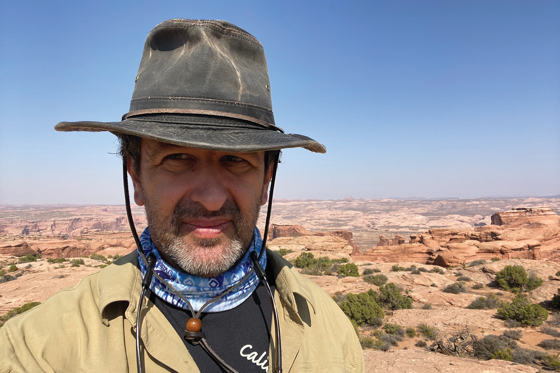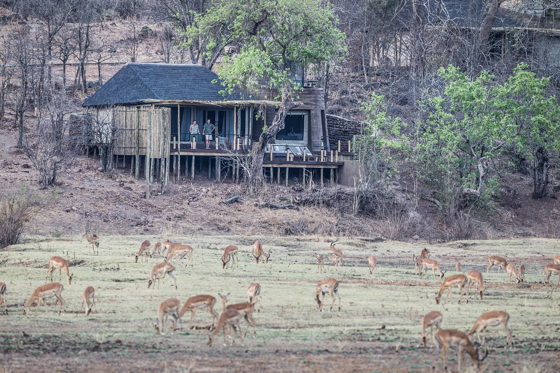As the hospitality industry was climbing out of the Great Recession a decade ago, Luca Franco noted a small shift in guest behavior; they were looking for meaningful experiences when traveling.
At the time, Franco was the owner of a Chicago, Illinois-based advisory company that delivered holistic solutions to luxury hotel and resort developers and investors.
“People were looking to collect memories,” he remembered. “And I felt like I wanted to capitalize on the trend.”
Contributed by Juliana Shallcross
Inspired by Africa’s safari camps, Franco established Luxury Frontiers in 2011, a design and development firm focused on creating high-end, sustainable and low-impact hospitality structures, such as tented camps or treetop suites.
These experiential accommodations could be built on a hotel or resort’s existing land, thus keeping overhead costs low while charging a premium for immersive experiences such as sleeping under the stars deep within a nature reserve. Franco envisioned Luxury Frontiers as a plug-and-play solution for hotel owners and developers to elevate their accommodations without too much infrastructure investment.
Little did he know that in 10 years, a pandemic would force the travel and hospitality industries into another deep crisis, one that would also drastically change what guests look for in travel. This time, guests weren’t just seeking new experiences, but wide-open spaces; the more removed and socially distant, the better.
“In 2011, experiential travel was just a trend,” Franco noted. “Now it’s a strong market that’s here to stay and grow.” While sustainable travel has been growing steadily in recent years, the pandemic has made it even more desirable. All of this has made what Luxury Frontiers does — immersive, thoughtful and luxurious experiences — a very “of the moment” service for resorts.

In the past year alone, Franco said Luxury Frontiers has seen five years’ worth of acceleration as hotel developers and investors seek ways to satisfy growing demand.
“People ask me, ‘what did you adjust or change about your business because of COVID-19’ and I always answer, ‘nothing,’” he said. “[We’re] just announcing our model, which has always been about embracing nature in a very respectful way, learning from nature and [resolving] challenges.”
Pitching the tent
Today, Luxury Frontiers has set up more than 25 experiential camps and lodges across six continents, most notably Camp Sakira at the luxe Amangiri resort in Canyon Point, Utah, and the Nayara Tented Camp at Costa Rica’s Arenal Volcano National Park. Brands including Four Seasons, Ritz-Carlton Reserve, Six Senses, Belmond, Abercrombie & Kent and Wilderness Safaris have all used Luxury Frontiers’ one-stop shop of design and implementation services. The company has offices in San Francisco, California, and Johannesburg, South Africa, and a team of about 40 employees, many with decades of experience building luxury eco-lodges.
Of course, getting Luxury Frontiers off the ground wasn’t exactly an easy sell. There wasn’t a prototype that Franco could point to, nor was there significant demand for luxury tents in the Americas. He used his personal rolodex to contact top executives from Four Seasons, Ritz-Carlton and Blackstone, but was rebuffed by many.
“They were calling me ‘The Tent Guy,’” he said, adding that while executives thought the idea of tents was “cool,” they didn’t think tents would fare well outside of Africa. “It was a tough sell for the first few years.”
Yet by 2012, Luxury Frontiers had worked on Wilderness Safaris’ Abu Camp in Bostwana and had developed tree houses in Italy, Franco’s homeland, as well as Mallorca. Projects such as the Belmond Savute Elephant Lodge and the Belmond Eagle Island Lodge, both in Botswana, followed as well.

Once Camp Sakira and Nayara were completed in late 2019, Franco said Luxury Frontiers had two successful case studies in the Americas that people could visit and experience. At Camp Sakira, a one-bedroom canvas tent with a private plunge pool sells for US$3,000 a night while a two-bedroom tent often fetches US$6,000 a night. Occupancy rates are frequently above 90%.
With rates at a premium for immersive stays (“there is no price resistance in [the pandemic],” Franco noted), Luxury Frontiers can deliver its clients a healthy return of investment.
Franco estimates that after two to three years, a Luxury Frontiers add-on project will break even. Within five years, a resort will see a return of investment of about 40%. For a project that is a circuit of camps and lodges (meaning guests can spend three nights at one camp and three nights at another camp in the same destination), owners can expect a 20% to 25% internal rate of return.
With owners and developers seeking quick experiential concepts for their portfolios, Luxury Frontiers does have healthy competition from other companies, namely Collective Retreats, Under Canvas and to some extent AutoCamp, which uses Airstream trailers as lodging. Yet Luxury Frontiers remains focused on its mission to deliver transformational luxury experiences true to the destination.
“It’s not just about the product,” Franco said. “It’s about a really meaningful journey and experience, whether it be in a tent, a treehouse or a cocoon.”
In the meantime, Franco and his team are working on coming up with a term other than “glamping” to describe the services that Luxury Frontiers provides. While glamping is great for SEO, Franco says it doesn’t capture the essence of what they do.
“In Africa, there are so many tents, but no one calls it glamping,” he said. “Because it’s not about fancy tents; it’s about conservation and sustainability.”
